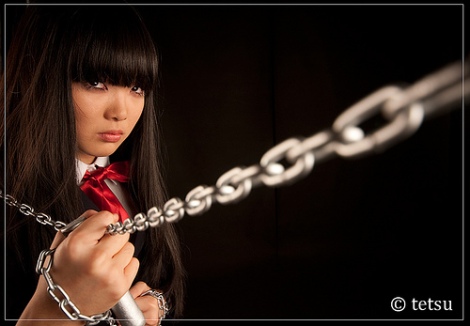PORT-AU-PRINCE, Haiti — The arrest of 10 Americans for trying to take children out of Haiti has raised an uncomfortable question in this brutally poor and earthquake-devastated country: could some children be better off abroad under the grim circumstances?
The Baptists from Idaho were waiting Monday to hear if they will be tried on child trafficking charges for attempting to take 33 Haitian children to the Dominican Republic without official authorization.
Child welfare groups expressed outrage over Friday’s attempt, saying some of the children had parents who survived the Jan. 12 earthquake. Prime Minister Max Bellerive denounced the group’s “illegal trafficking of children” in a country long afflicted by the scourge and by foreign meddling.
But the reality is that some struggling Haitian parents see adoption as a last-ditch hope for their children.
“My parents died in the earthquake. My husband has gone. Giving up one of my kids would at least give them a chance,” Saintanne Petit-Frere, 40, a mother of six living outside in a tent camp near the airport said Sunday. “My only fear is that they would forget me, but that wouldn’t affect my decision.”
The Baptists’ “Haitian Orphan Rescue Mission” was described as an effort to save abandoned, traumatized children. Their plan was to scoop up 100 kids and take them by bus to a 45-room hotel at Cabarete, a beach resort in the Dominican Republic. The 33 kids ranged in age from 2 months to 12 years.
They were stopped at the border for not having proper paperwork and taken back to Port-au-Prince, where the children were taken to a temporary children’s home.
Haiti’s justice secretary, Amarick Louis, told The Associated Press that a commission would meet Monday to determine if the group would go before a judge. The group was being held at a building where government ministers are giving regular briefings – a maze of dingy concrete rooms but not traditional cells. Their living conditions were unclear.
Foreigners adopting children from the developing world have grabbed headlines recently – Madonna tried to adopt a girl from Malawi amid criticism from locals, while Brad Pitt and Angelina Jolie have a burgeoning multicultural brood.
But in Haiti, a long tradition of foreign military intervention coupled with the earthquake that destroyed much of the capital and plunged it even deeper into poverty, have made this issue even more emotionally charged.
“Some parents I know have already given their children to foreigners,” said Adonis Helman, 44. “I’ve been thinking how I will choose which one I may give.”
Haiti’s overwhelmed government has halted all adoptions unless they were in motion before the earthquake amid fears that parentless or lost children are more vulnerable than ever to being seized and sold. Sex trafficking has been rampant in Haiti.
Without proper documents and concerted efforts to track down their parents, children could be forever separated from family members able and willing to care for them. Bellerive’s personal authorization is now required for the departure of any child.
“For UNICEF, what is important is that for children separated from their parents, we do everything possible to have their families traced and to reunite them,” said Kent Page, a spokesman for the group in Haiti. “They have to be protected from traffickers or people who wish to exploit these children.”
He said it was possible the Americans arrested may have had “good intentions but misguided execution.”
The Idaho church group’s spokeswoman, Laura Silsby, told the AP from detention that the group was “just trying to do the right thing” amid the chaos. She conceded she had not obtained the proper Haitian documents for the children.
The children were taken to an orphanage run by Austrian-based SOS Children’s Villages, where spokesman George Willeit said they arrived “very hungry, very thirsty.” A 2- to 3-month-old baby was dehydrated and had to be hospitalized, he said. Workers were searching for their families or close relatives.
“One (8-year-old) girl was crying, and saying, ‘I am not an orphan. I still have my parents.’ And she thought she was going on a summer camp or a boarding school or something like that,” Willeit said.
As the poorest country in the Western Hemisphere, Haiti is in a difficult spot – it needs aid, but deeply resents foreign meddling. Many have mixed feelings toward Christian groups that funnel hundreds of millions into missions in Haiti.
Christian missionaries alone run or support an estimated 2,000 primary schools attended by some 600,000 students – a third of Haiti’s school-aged population, according to government figures. Church groups also run vital hospitals, orphanages and food-distribution sites.
“There are many who come here with religious ideas that belong more in the time of the inquisition,” said Max Beauvoir, head of Haiti’s Voodoo Priest’s Association, which represents thousands of priests and priestesses. “These types of people believe they need to save our souls and our bodies from ourselves. We need compassion, not proselytizing now, and we need aid – not just aid going to people of the Christian faith.”
Two-thirds of Haiti’s 9 million are said to practice Voodoo, a melange of beliefs combining animism from west Africa and Catholicism.
Many religious groups run legitimate adoption agencies and orphanages in Haiti.
The arrested Americans include members of the Central Valley Baptist Church in Meridian, Idaho, and the East Side Baptist Church in Twin Falls, Idaho. They are part of the Southern Baptist Convention, which is America’s largest Protestant denomination and has extensive humanitarian programs worldwide.
The Idaho churches had elaborate plans before the earthquake to shelter up to 200 Haitian and Dominican boys and girls in the Magante beach resort, complete with a school and chapel as well as villas and a seaside cafe catering to adoptive U.S. parents.
source: http://www.washingtonpost.com/wp-dyn/content/article/2010/02/01/AR2010020100505_pf.html










